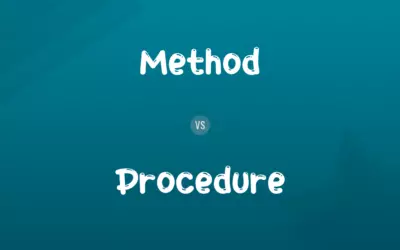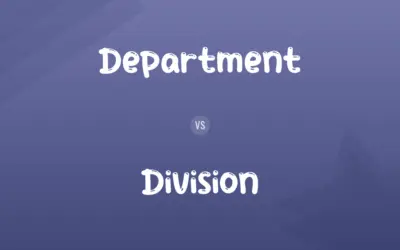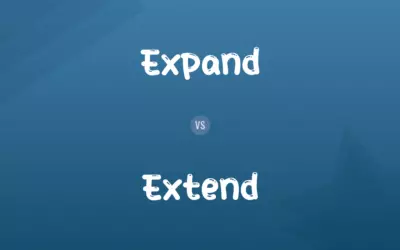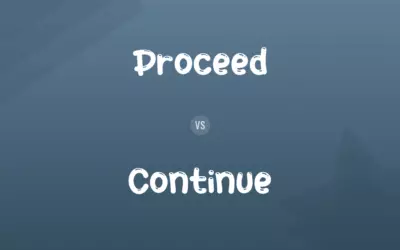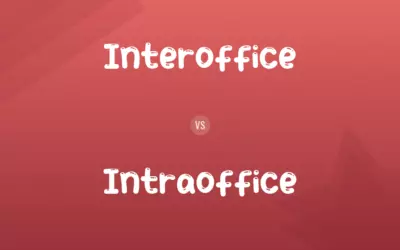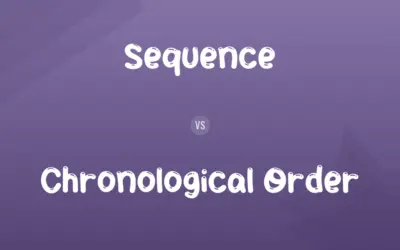Employer vs. Employee: Difference and Comparison
Edited by Muazma Batool — By Muneeza Rehman — Updated on September 11, 2023
An employer is an individual or entity that hires and pays for labor, while an employee is the person hired to perform specific tasks or services.
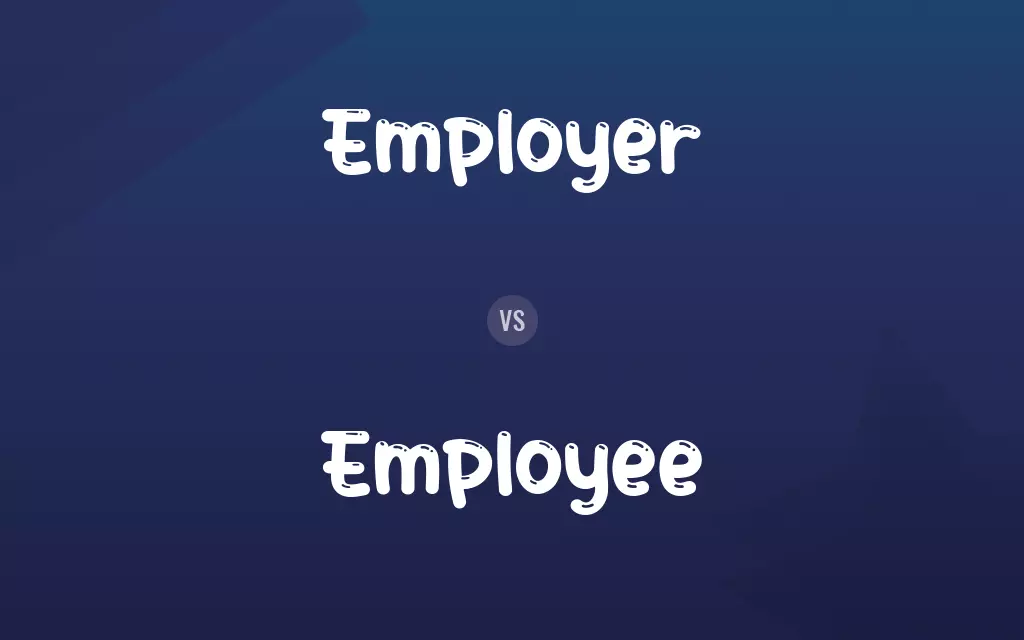
Difference Between Employer and Employee
The relationship between an employer and an employee is central to the workings of businesses and organizations. An employer, whether an individual or an entity like a company, is responsible for hiring individuals to complete tasks or provide services. They are in a position of authority and usually set the terms of employment, including salary, job responsibilities, and working conditions. On the other hand, employee agrees to work under the set terms and provides services or labor in return for compensation.
Muazma Batool
Sep 11, 2023
In economic terms, the employer can be seen as the demand side of the labor market equation, seeking skills and expertise that will benefit their business operations. The employee represents the supply side, offering their skills, time, and effort to the employer in exchange for remuneration. This dynamic creates a mutual dependency: employers need employees to operate, and employees need employers to earn a livelihood.
Muazma Batool
Sep 11, 2023
Legally, the distinction is clear. Employers have specific obligations to their employees, such as providing a safe working environment, paying agreed-upon wages, and adhering to labor laws. Employees, in turn, have obligations to their employers, including performing their job duties to the best of their ability and adhering to company policies and regulations.
Muneeza Rehman
Sep 11, 2023
The power dynamic between an employer and an employee is also worth noting. While employers hold a position of authority, it's crucial for a healthy work environment that they treat employees with respect and fairness. Similarly, employees, while under the direction of their employers, have rights and should be empowered to speak up and advocate for themselves in the workplace.
Kaitlyn
Sep 11, 2023
Employer vs. Employee Comparison Chart
Position
Authority, sets terms of employment
Works under set terms of employment
Muneeza Rehman
Sep 11, 2023
Legal Obligations
Provide safe work environment, pay wages, adhere to labor laws
Perform job duties, adhere to company policies
Muazma Batool
Sep 11, 2023
Economic Representation
Demand side in the labor market
Supply side in the labor market
Muneeza Rehman
Sep 11, 2023
Dependency
Depends on employees for business operations
Depends on employers for livelihood
Muazma Batool
Sep 11, 2023
Employer vs. Employee Definitions
◉Employer
The figure of authority in a workplace.
The employer addressed the concerns raised in the meeting.
Muazma Batool
Sep 11, 2023
◉Employee
An individual hired to perform specific tasks.
The employee received an award for outstanding performance.
Elijah
Sep 11, 2023
◉Employer
An individual or entity that hires workers.
The employer decided to expand the team.
Leo
Sep 11, 2023
◉Employee
Represents the supply side in the labor market.
As a skilled programmer, the employee had several job offers.
Elijah
Sep 11, 2023
◉Employer
An entity that sets terms of employment.
The employer introduced a new work-from-home policy.
Olivia
Sep 11, 2023
◉Employee
A person who works in return for wages.
The employee worked overtime to finish the project.
Leo
Sep 11, 2023
◉Employer
The demand side in the labor market equation.
The employer was looking for specific skills for the new project.
Muazma Batool
Sep 11, 2023
◉Employee
Someone under the direction of an employer.
The employee followed the new protocol set by management.
Muazma Batool
Sep 11, 2023
◉Employer
The party responsible for paying wages.
The employer ensured timely payments to all staff.
Leo
Sep 11, 2023
◉Employee
The party agreeing to terms set by the employer.
The employee signed the new contract with revised terms.
Muazma Batool
Sep 11, 2023
◉Employer
To provide work to (someone) for pay
agreed to employ the job applicant.
Muneeza Rehman
May 03, 2023
◉Employee
A person who works for another in return for financial or other compensation.
Muneeza Rehman
May 03, 2023
◉Employer
To engage the attention or activity of; occupy
employed himself for an hour reading blogs.
Muneeza Rehman
May 03, 2023
◉Employee
An individual who provides labor to a company or another person.
One way to encourage your employees to work harder is by giving them incentives.
Muneeza Rehman
May 03, 2023
◉Employer
To put (something) to use or service
employed a pen to open the package.
employed her skills in the new job.
Muneeza Rehman
May 03, 2023
◉Employer
To devote (time, for example) to an activity or purpose
employed several months in learning Swahili.
Muneeza Rehman
May 03, 2023
◉Employer
A person, firm or other entity which pays for or hires the services of another person.
Muneeza Rehman
May 03, 2023
Employer vs. Employee Frequently Asked Questions
Can an individual be both an employer and an employee?
Yes, an individual can be both, especially in situations where they run their own business but also work for another entity.
Muazma Batool
Sep 11, 2023
Who is considered an employee?
An employee is an individual hired by an employer to perform specific tasks or services in exchange for wages.
Muneeza Rehman
Sep 11, 2023
Why is the distinction between employer and employee important?
The distinction is crucial for defining roles, responsibilities, rights, and obligations in a professional setting.
Olivia
Sep 11, 2023
How do labor laws view the relationship between employers and employees?
Labor laws define the rights and obligations of both employers and employees, ensuring fair treatment and working conditions.
Elijah
Sep 11, 2023
Do all employers have authority over their employees?
While employers have a position of authority in terms of job roles and responsibilities, they must adhere to laws and respect employee rights.
Olivia
Sep 11, 2023
How can an employee ensure they are treated fairly by their employer?
Employees can familiarize themselves with labor laws, understand their rights, and engage in open communication with their employers.
Jonathan
Sep 11, 2023
What defines an employer in a workplace?
An employer is an individual or entity that hires, pays for labor, and sets terms of employment.
Muazma Batool
Sep 11, 2023
In terms of economic theory, how do employers and employees fit?
Employers represent the demand side of the labor market, while employees represent the supply side.
Muneeza Rehman
Sep 11, 2023
Are contractors considered employees?
Contractors are typically not considered employees but independent entities providing services under a contract.
Leo
Sep 11, 2023
What responsibilities do employers have towards their employees?
Employers have various responsibilities, including providing safe working conditions, paying agreed wages, and adhering to labor laws.
Lucas
Sep 11, 2023
Content Creators
Written by
Muneeza RehmanAt Comparisons.wiki, Muneeza skillfully navigates the vast sea of information, ensuring clarity and accuracy as the lead content editor. With a keen eye for detail, she curates every comparison to enlighten and engage readers.
Edited by
Muazma BatoolAs a content editor, Muazma Batool is not just a grammar guru but a creative mastermind who breathes life into every word. With an eagle eye for detail and a passion for storytelling, she transforms bland text into engaging content that captivates audiences and drives results.

